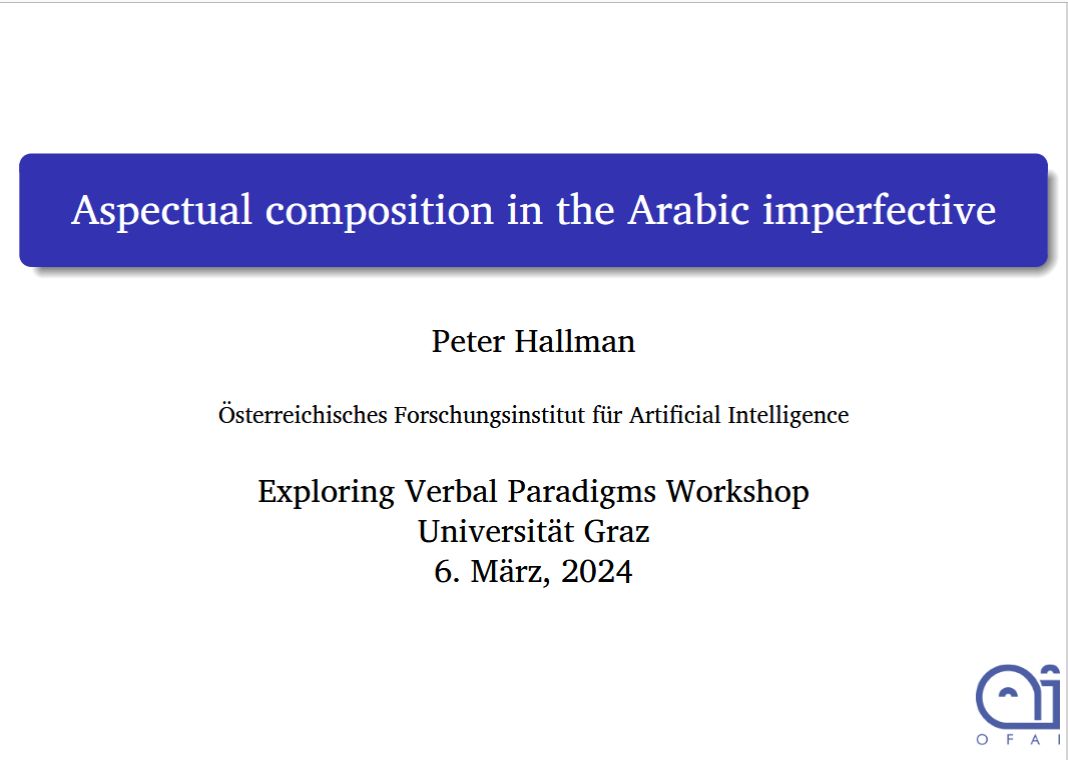"Aspectual Composition in the Arabic Imperfective"
Peter Hallman gave an invited talk on "Aspectual Composition in the Arabic Imperfective" in the Workshop "Exploring Verbal Paradigms: Confronting Arabic and Slavic Languages in Tense and Aspect Realization", hosted at the Institute for Slavic Studies, University of Graz, on March 6, 2024.
Talk Abstract: (The slides of the talk can be accessed here.)
The Standard Arabic imperfective verb form has three “moods”, called “indicative”, “subjunctive”, and “jussive”. The indicative conveys the two meanings typically associated with imperfectivity cross-linguistically, namely the progressive and habitual aspects, but the other two moods are harder to pin down semantically. In this talk, I present evidence that the subjunctive corresponds to the English infinitive and has no meaning of its own. Rather, in the subjunctive form, the lexical aspect of the underlying verb shines through. I claim that the indicative mood also has no meaning of its own, but only applies to verb phrases that are aspectually stative. In order for an eventive verb to be put in the indicative, then, it must first be stativized by a null habitual or progressive operator, explaining the morphological uniformity of habitual and progressive aspects in Arabic and potentially cross-linguistically. I will have less to say about the jussive, but suggest that it bears a closer resemblance to the subjunctive than to the indicative and may be an allomorph of it.
